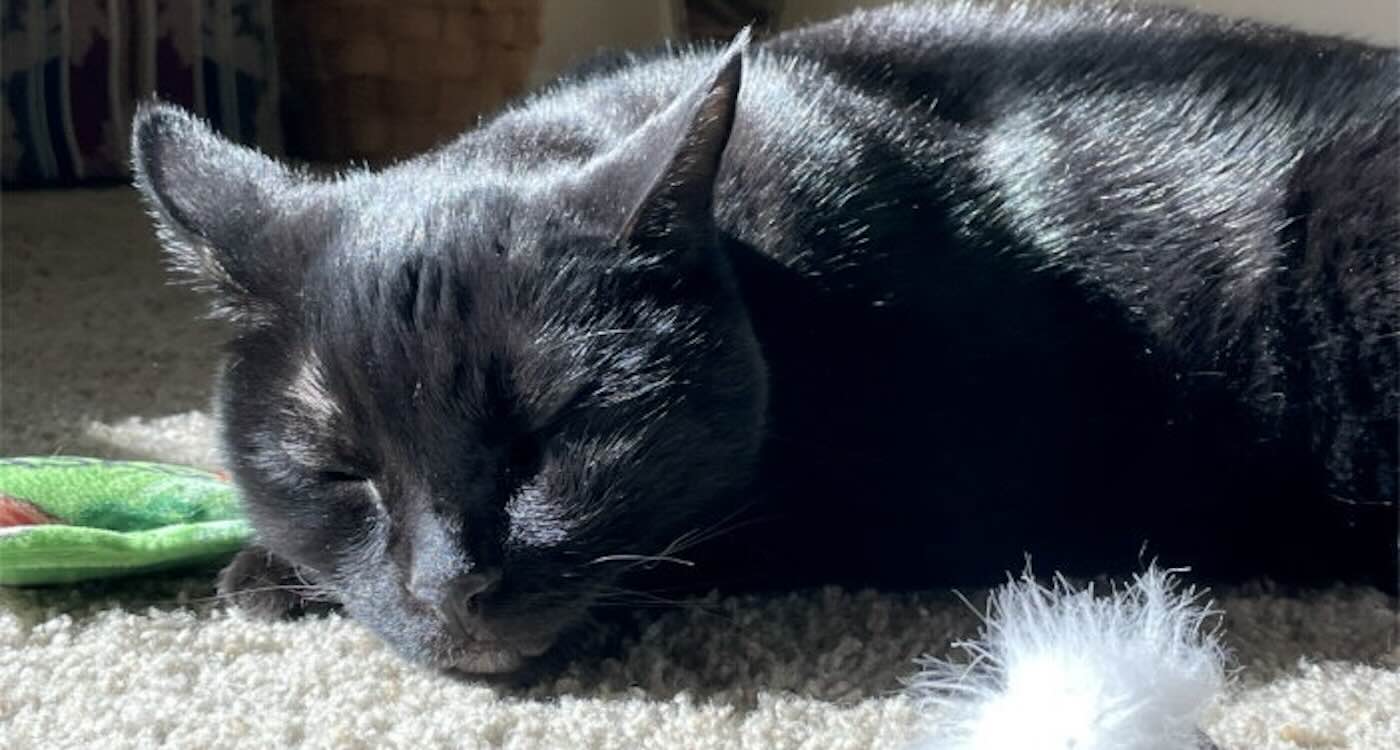
A new targeted treatment for cats with head and neck cancers may also help save human lives in the future, say scientists.
The first-ever clinical trial of the therapy found that more than a third of felines who received treatment (35%) had their disease controlled with minimal side effects.
And the drug will likely be effective for humans with head and neck squamous cell carcinoma (HNSCC, which is notoriously deadly and difficult to treat), according to the American research team.
“There are two major findings from this study,” said study senior author Professor Daniel Johnson. “It showed us that it’s possible to target a transcription factor that drives oncogenesis, which is something that has been notoriously difficult in the past.
“Also, it demonstrated that pets with cancer can be a good representation of human disease and that clinical trials in pets may yield more reliable results than tests in mouse models.”
Prof. Johnson says the drug is the first to target the transcription factor STAT3, which is present in a range of both solid and liquid cancerous tumors, including a majority of HNSCC cases.
The idea to test the HNSCC drug on pet cats arose when study first author Dr. Jennifer Grandis talked to her sister, who is a veterinarian.
Oral cancers in pet cats—including HNSCC—are extremely difficult to treat and most animals die within two to three months of diagnosis.
MORE CAT STUDIES: Cats With Arthritis Are Wearing Caps in Groundbreaking Research to Understand and Relieve Their Pain
“There is remarkable clinical, histopathologic, and immunologic similarity between feline and human HNSCC,” said Prof. Johnson of the University of California, San Francisco.
One cat who benefited from the trial was a nine-year-old black domestic shorthair named Jak (pictured below and above). He was diagnosed with HNSCC, and vets gave him just 6-8 weeks to live.

Owner Tina Thomas said, “It was just a gut punch. We wanted more time with him.”
“When I found out about this clinical trial, I knew I wanted him to be a part of it.”
Jak went to weekly treatments for one month and during that time his symptoms and watery eye improved significantly. He ultimately lived more than eight months beyond his most dire diagnosis.
“It was meaningful to us because he was here in our lives,” recalled Tina. “During that time, my son finished college and my daughter finished her master’s program.
“Jak got to spend one more Christmas with us, and he loved our Christmas tree. He was worth every bit of the effort.”
CAT LOVERS NEEDED THIS: Scientists Finally Discover Why Some Cats Are Orange–and Why They Tend to Be Males
None of the cats in the trial developed side effects that were attributable to the treatment other than mild anaemia, according to the study published in the journal Cancer Cell. Of the 20 cats that were enrolled, seven exhibited either a partial response or stable condition during the study period.
Of the seven that responded, the average survival post-treatment was 161 days.
When the research team looked at tumors and blood samples from the cats who underwent treatment, they saw that the compound was working in two ways.
It not only blocked the activity of STAT3, but it also raised levels of PD-1, a protein associated with an immune response to cancer.
Dr. Grandis said: “This study is a great example of how we can think more carefully about spending our very limited resources on studies in lab mice that are not even the best models of human cancers.
“By partnering with veterinary oncologists and doing clinical trials in companion animals, we can learn an enormous amount about how these drugs work while also helping people’s pets.
PURR-FECT NEWS: Man is ‘Overwhelmed’ as His Bengal Cat is Returned From 16-year Absence After a Phone Call
“None of the cats in these trials were harmed, and many of them benefited.”
The researchers say that conducting clinical trials in pets can be a “much better” model of how drugs will work in humans, compared with lab mice.
The team is currently working with a small biotech company to advance the new compound in clinical trials for both pets and humans.
SHARE THE CANCER HOPE On Social Media…


